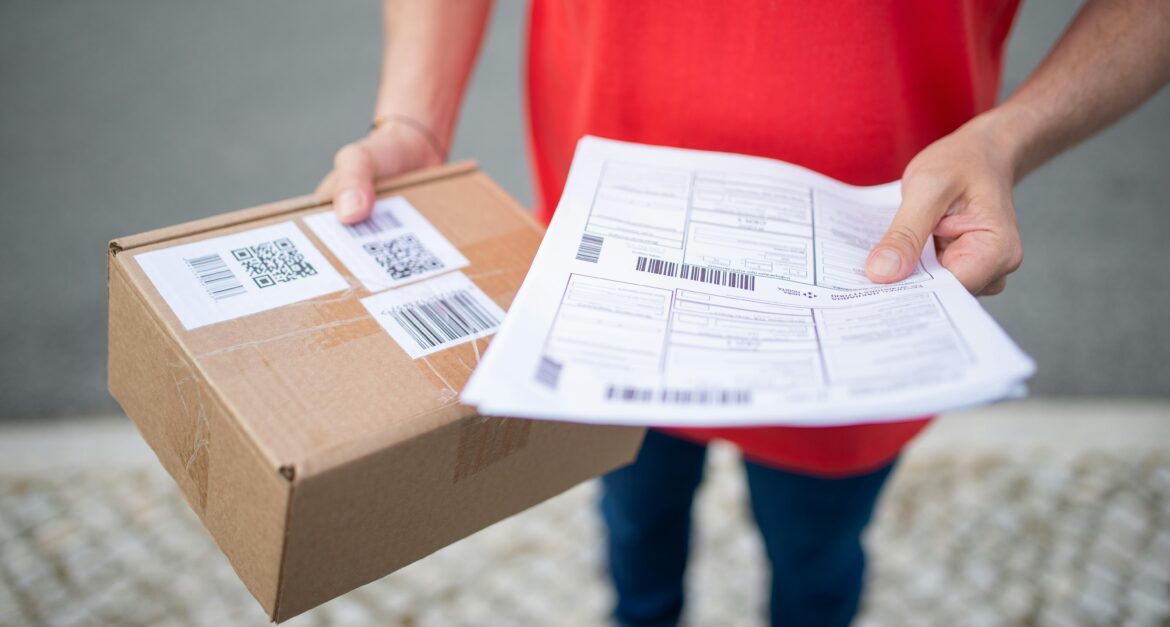
Introduction:
Are you frustrated with your food shipments getting stuck at Saudi customs, even after following all the import rules?
That sinking feeling when your goods are delayed because of one tiny HS code mismatch or missing SFDA approval is more common than you think. Many importers lose time, money, and reputation just because their products weren’t classified correctly or lacked Halal and Arabic labeling compliance.
Here’s the good news — there’s a smarter way.
By understanding the correct HS codes for food and beverages and ensuring your documentation aligns with SFDA, Halal, and labeling standards, you can clear shipments effortlessly. And with the support of a trusted logistics partner like Palm Horizon, every import step — from classification to delivery — becomes smooth, compliant, and worry-free.
The Challenge of Entering Saudi Arabia’s Food Market
Are you planning to export food or beverages to Saudi Arabia but feeling overwhelmed by regulations, HS codes, and approval processes?
You’re not alone. Many importers struggle with shipment delays, SFDA rejections, and labeling errors that can cost thousands of riyals.
Ultimately, the solution lies in mastering HS codes for food and beverages. By ensuring SFDA approval, Halal certification, and Arabic labeling compliance — and by partnering with a reliable logistics provider like Palm Horizon — exporters can therefore streamline every step of the import and export process.
What Are Food & Beverage HS Codes in Saudi Arabia?
HS Codes, or “Harmonized System” codes, are international product identifiers used by customs to determine duties, taxes, and import restrictions.
In Saudi Arabia, these codes are managed by ZATCA (Zakat, Tax, and Customs Authority) and tied directly to SFDA regulations for food products.
Each code determines how a product is inspected, certified, and cleared. For instance:
| Product Type | Example HS Code | Key Regulation |
| Processed Foods | 2106.90 | SFDA Food Import Regulation |
| Dairy Products | 0402.21 | Halal Certification & Lab Testing |
| Beverages | 2202.99 | Arabic Labeling & Shelf-Life Declaration |
| Canned Foods | 2008.97 | Pre-Shipment Inspection |
| Snacks & Confectionery | 1905.31 | Ingredient Disclosure & Nutritional Labeling |
Selecting the wrong HS code can trigger shipment holds, fines, or reclassification at customs.
Comprehensive List of Food & Beverages HS Codes in Saudi Arabia
Below is a categorized overview of the most common HS codes under which food and beverage items are imported into Saudi Arabia — including compliance requirements and documentation highlights for each segment.
Dairy Products
| HS Code | Product Description | SFDA / Import Requirement |
| 0401.10 | Milk and cream, not concentrated | Requires health certificate & Arabic labeling |
| 0402.21 | Milk powder (not exceeding 1.5% fat) | Halal certificate + SFDA product registration |
| 0402.29 | Whole milk powder (>1.5% fat) | Pre-shipment lab testing; shelf-life declaration |
| 0403.10 | Yogurt, flavored or plain | Cold-chain logistics and expiry date in Arabic |
| 0405.10 | Butter and dairy spreads | Halal verification (animal origin) mandatory |
| 0406.90 | Cheese and curd | COA, Halal, SFDA approval before shipping |
| 0409.00 | Natural honey | Labeling in Arabic, country of origin required |
Meat & Animal-Derived Food Items
| HS Code | Product Description | Key Compliance Points |
| 0202.30 | Frozen beef cuts | Halal slaughter certificate from SFDA-approved body |
| 0207.14 | Frozen chicken parts | Pre-slaughter approval + Certificate of Origin |
| 1601.00 | Sausages and meat preparations | SFDA product approval & lab test for preservatives |
| 1602.50 | Prepared or canned meat | Arabic labeling and halal verification required |
Cereals, Bakery, and Snack Foods
| HS Code | Product Description | Required Documents |
| 1902.11 | Pasta (uncooked, not stuffed) | SFDA registration & Arabic ingredient list |
| 1904.10 | Ready-to-eat cereals | Nutritional labeling in Arabic, COA, shelf life |
| 1905.31 | Sweet biscuits | Ingredient disclosure, allergen info, and halal compliance |
| 1905.90 | Bread, pastries, cakes | Expiry date & storage temperature labeling |
| 2005.99 | Canned vegetables & mixed foods | Pre-shipment conformity & labeling in Arabic |
Confectionery & Processed Sweets
| HS Code | Product Description | Import Rules |
| 1704.90 | Sugar confectionery (chewing gum, sweets) | SFDA testing for additives, labeling requirements |
| 1806.10 | Chocolate bars and blocks | Halal verification for emulsifiers, Arabic expiry |
| 1806.90 | Cocoa-based spreads and snacks | Shelf-life declaration + Halal certificate |
| 1901.20 | Mixes and doughs for bakery items | Must display allergen info and manufacturer name |
Canned & Preserved Foods
| HS Code | Product Description | SFDA & Customs Requirements |
| 2008.11 | Groundnuts and nut mixtures | COA + Halal certification for flavoring oils |
| 2008.97 | Canned fruits and vegetables | Arabic labeling for syrup content and net weight |
| 2009.11 | Orange juice (not fermented) | Requires SFDA registration and batch COA |
| 2009.90 | Other fruit juices | Shelf life validation; temperature control |
| 2103.90 | Sauces, condiments, and mixed seasonings | Ingredient breakdown in Arabic; Halal for emulsifiers |
| 2104.20 | Soups and broths, ready-to-eat | Pre-shipment inspection for microbial levels |
| 2106.90 | Prepared foods, mixes, and dietary items | SFDA product classification mandatory |
Beverages (Non-Alcoholic)
| HS Code | Product Description | Key Saudi Regulations |
| 2202.10 | Mineral and aerated water | Arabic labeling for mineral content and expiry |
| 2202.90 | Juices, soft drinks, flavored beverages | COA, Halal certification for additives |
| 2209.00 | Vinegar and substitutes | Proper Arabic label & SFDA notification |
| 2101.12 | Instant coffee and mixes | Labeling of caffeine content required |
| 2101.20 | Tea extracts and concentrates | Must declare flavoring origin and shelf life |
Processed Foods & Prepared Meals
| HS Code | Product Description | Documentation |
| 1604.14 | Prepared or canned tuna | SFDA registration & Halal verification |
| 2105.00 | Ice cream and frozen desserts | Temperature control and expiry labeling |
| 2106.10 | Protein supplements / food preps | COA, Halal, Arabic labeling |
| 2106.90.90 | Miscellaneous edible preparations | SFDA test report + CoC if high-risk |
| 1901.90 | Infant foods & dietary preparations | Special SFDA import permit required |
Documentation & Compliance Essentials
To clear these products smoothly, importers must ensure:
- SFDA Product Registration before shipment
- Certificate of Origin (COO) from the exporting country
- Halal Certificate (mandatory for animal-derived ingredients)
- Certificate of Analysis (COA) from accredited lab
- Arabic Labeling (name, ingredients, production & expiry date)
- Health/Sanitary Certificate for dairy, meat, and processed foods
- Pre-Shipment Approval for regulated categories (dairy, meat, canned foods)
All documentation must be uploaded via Saudi FASAH or SABER platforms, and aligned with ZATCA Customs HS classification.
Core Compliance Requirements in KSA
1. SFDA (Saudi Food and Drug Authority) Approval
Every food product entering Saudi Arabia must be registered with the SFDA before shipment. This includes:
- A valid Certificate of Origin
- Health and Sanitary Certificates
- Certificate of Analysis (COA) with ingredients and shelf life
- Import permit issued by SFDA
- Approval from FASAH (Saudi import platform) for customs clearance
2. Halal Certification
Halal certification is mandatory for all animal-derived foods, beverages, and additives.
Approved certificates must come from SFDA-recognized Halal authorities and include:
- Name and license of the slaughterhouse
- Date of slaughter and animal type
- Proof of compliance with Islamic zabiha standards
3. Arabic Labeling
According to GSO 9/2013, all prepackaged food must carry Arabic or bilingual labels with:
- Product name and full ingredient list
- Production and expiry dates (in Gregorian or Hijri)
- Manufacturer and importer details
- Net weight and storage instructions
- Allergen and nutrition information
4. Pre-Shipment Inspection
In addition, certain categories — such as dairy, meat, processed fruits, or beverages — may also require pre-shipment testing or a Certificate of Conformity (CoC) before export.
Without this, shipments risk rejection or extended clearance delays.
Why HS Codes Matter Beyond Customs
Each HS code in the Saudi tariff schedule carries hidden compliance triggers:
- Determines testing frequency at SFDA labs
- Influences customs duty rates and VAT
- Indicates if Halal, labeling, or CoC is required
- Affects port clearance speed and inspection level
For example:
- HS 0402 (Milk powders) often face lab testing and storage control.
- HS 2202 (Non-alcoholic beverages) requires shelf life validation and Arabic labeling before approval.
Real-World Use Cases and Industry Applications
- Snack Manufacturers exporting chips, nuts, or chocolates to Saudi supermarkets must classify products correctly under HS 1905 or 2008 to avoid re-testing.
- Dairy Producers from Europe rely on SFDA-approved Halal certificates and temperature-controlled transport.
- Juice and Beverage Companies ensure Arabic labels list ingredients, calories, and expiry dates to pass inspection.
- Canned Food Exporters must provide pre-shipment conformity certificates to prevent customs rejections.
By partnering with Palm Horizon, exporters can seamlessly integrate compliance into their logistics process. Moreover, from product classification to customs clearance, this partnership helps ensure efficiency while saving both time and cost.
Palm Horizon: Your Logistics Partner for Food Imports into Saudi Arabia
While many freight companies handle transportation, few understand Saudi regulatory nuances.
Palm Horizon goes beyond shipment — offering regulatory guidance, customs brokerage, and document preparation for SFDA, Halal, and ZATCA processes.
Here’s how Palm Horizon supports your business:
- Expert HS code classification and customs documentation
- Coordination with SFDA-approved Halal bodies
- Arabic labeling verification and packaging review
- Handling FASAH registration and import permit submissions
- End-to-end logistics — from port handling to warehouse delivery
With proven success across the FMCG, dairy, and beverage sectors, Palm Horizon ensures your products arrive compliantly, safely, and on time in KSA.
Implementation Roadmap: Step-by-Step Import Flow
- Product Assessment – Verify HS codes and classification.
- Label & Halal Review – Prepare compliant Arabic labels and certification.
- SFDA Registration – Register importer and product in SFDA’s portal.
- Pre-Shipment Inspection – Complete CoC and testing if required.
- Customs Submission – Submit documents via FASAH.
- Port Clearance – Manage inspections and laboratory sampling.
- Final Delivery – Palm Horizon ensures warehouse delivery across KSA.
FAQs on Food & Beverage HS Codes in Saudi Arabia
1. How can I find the correct HS code for my food product?
Use Saudi Customs’ tariff database and cross-check with SFDA’s product classification. Palm Horizon’s experts can assist with correct mapping and risk review.
2. What documents are required for SFDA clearance?
For successful import approval, SFDA registration, the Certificate of Origin, the Halal Certificate (if applicable), the Certificate of Analysis (COA), and Arabic labeling proof are all mandatory requirements. Moreover, importers must ensure that each document is complete and compliant before shipment to avoid delays or rejections at Saudi customs.
3. Can I import directly without a Saudi partner?
You must appoint a Saudi importer or authorized representative registered with SFDA to handle customs and labeling compliance.
4. Do beverages and snacks need Halal certification?
To comply with import regulations, SFDA registration, Certificate of Origin, Halal Certificate (if applicable), COA, and Arabic labeling proof are mandatory. Additionally, a Halal Certificate is required if products contain any animal-derived ingredients, emulsifiers, or flavor additives.
5. How can I avoid shipment rejection at Saudi customs?
Ensure accurate HS code, clear Arabic labeling, and pre-approved Halal certificates. Work with a logistics provider experienced in SFDA and ZATCA regulations like Palm Horizon.
Conclusion: Compliance Meets Logistics Excellence
Understanding and applying the right Food & Beverage HS codes in Saudi Arabia is the key to successful market entry.
From SFDA approvals to Halal and labeling requirements, every regulation matters — and missteps can be costly.
With Palm Horizon, you get more than a freight service — you get a reliable logistics partner who understands regulatory frameworks, product handling, and Saudi compliance inside out.
Let your food products reach Saudi shelves faster, safer, and fully compliant — powered by Palm Horizon, your trusted logistics partner in KSA.





